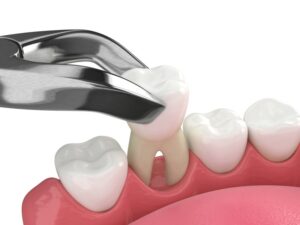
Tooth extraction is one of the most misunderstood dental procedures. The idea of having a tooth pulled can be intimidating, and misinformation often adds unnecessary fear or confusion. While no one looks forward to having a tooth removed, modern dental techniques have made extractions safer, more comfortable, and easier to recover from than ever before. Let’s take a look at some of the most common myths about tooth extraction, and uncover the truth behind them.
Myth #1: Tooth Extraction Is Extremely Painful
This is perhaps the most widespread myth, and it’s simply not true with modern dentistry. Dentists use local anesthesia to numb the area completely before an extraction. You may feel pressure or movement, but you shouldn’t feel pain during the procedure. For more complex cases or patients with dental anxiety, sedation options are often available to ensure maximum comfort.
Myth #2: You Should Avoid Tooth Extraction at All Costs
While preserving natural teeth is always a top priority, there are situations where extraction is the best and healthiest option. Severely decayed, infected, or broken teeth that cannot be repaired may need to be removed to prevent further complications. Wisdom teeth that are impacted or crowding other teeth are also commonly extracted to protect overall oral health.
Myth #3: Recovery Takes a Long Time
Most people recover from a simple tooth extraction within a few days. While it’s important to follow post-operative instructions such as avoiding strenuous activity, not smoking, and eating soft foods, recovery is generally quick and manageable. Complex extractions or wisdom teeth removal may take a bit longer, but your dentist will guide you through the healing process and pain management.
Myth #4: You Don’t Need to Replace an Extracted Tooth
Some people believe that once a tooth is gone, it doesn’t need to be replaced, especially if it’s in the back of the mouth. However, missing teeth can lead to a host of problems, including shifting teeth, bite misalignment, jawbone loss, and changes in facial appearance. Options like dental implants, bridges, or dentures can restore function and prevent long-term complications.
Myth #5: Only Adults Need Tooth Extractions
While extractions are more common in adults due to issues like decay and gum disease, they can be necessary for children and teens, too. Sometimes baby teeth don’t fall out on their own, or orthodontic treatment may require removing teeth to create space. In all cases, the decision is made with the patient’s long-term oral health in mind.
Myth #6: You Can Resume Normal Activities Immediately
After a tooth extraction, it’s important to rest and avoid activities that could dislodge the blood clot forming at the extraction site. Ignoring aftercare instructions can lead to dry socket, a very painful condition that delays healing. Most patients can resume normal activities within a day or two, but it’s crucial to follow your dentist’s advice.
Tooth extraction is a common and safe dental procedure that, when necessary, plays an important role in maintaining oral health. Don’t let myths and fear keep you from getting the care you need. If your dentist recommends an extraction, know that it’s done with your comfort and well-being in mind and that today’s dental techniques make the process smoother than ever.
About the Author
Dr. Erin M. Prach is a graduate of the University of Colorado School of Dental Medicine. In 2014, Dr. Prach completed a continuing education course on oral surgery in Guatemala and is about to achieve Diplomate Status with the American Board of Dental Sleep Medicine. She is also a member of the American Dental Association and the Wyoming Dental Association. Dr. Prach and our team are able to handle many tooth extractions in-house, and we welcome your dental insurance to try and maximize your benefits. Schedule your appointment through our website or call our Casper office at (307) 337-4770.
